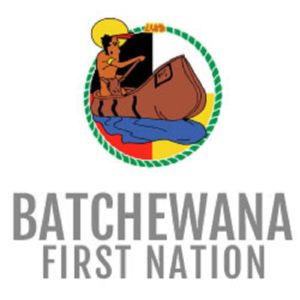Crown ordered to pay Batchewana First Nation band members $390,000 for failed prosecution
 SAULT STE. MARIE, ON (February 23, 2017)–A provincial court judge ordered the Crown to pay $390,000 for withdrawing logging charges against four Batchewana First Nation band members on the eve of trial.
SAULT STE. MARIE, ON (February 23, 2017)–A provincial court judge ordered the Crown to pay $390,000 for withdrawing logging charges against four Batchewana First Nation band members on the eve of trial.
Justice Kwolek of the Ontario Court of Justice found the prosecution’s conduct justified a costs award. “I find that this delay by the Crown in reaching a decision to withdraw the charges in May of 2016 was ‘a marked and unacceptable departure from the reasonable standards expected of the prosecution,’” wrote Justice Kwolek in a 28-page judgment released on February 13, 2017.
“The decision emphasizes what BFN has stated consistently throughout this prosecution: that negotiations must take place on a ‘nation to nation’ basis in the spirit of the Truth and Reconciliation Commission’s call to actions and the UN Declaration of the Rights of Indigenous Peoples,” says Batchewana First Nation Councillor Stacey Tijerina.
The court ordered the Crown to pay $90,000 to Clinton Robinson and $300,000 to Gilles Robinson, Philip Swanson, and Dean Sayers, Chief of Batchewana First Nation. “I find that such an award is appropriate to express the court’s denunciation of the Crown’s actions in the circumstances of this case while providing reasonable indemnification in accordance with the existing case law,” wrote Justice Kwolek.
The charges date back to incidents in 2007 and 2008. The parties were charged in 2008 under the Crown Forest Sustainability Act which prohibits logging in a Crown forest without a licence. They first appeared in court on November 6, 2008, but a trial wasn’t scheduled until September 2015. The parties pled not guilty to all charges and the trial was adjourned to May 16, 2016.
In May 2014, expert witness James Morrison provided a report to substantiate the band members’ claim the Batchewana First Nation had the right to harvest timber resources for sustenance, trade or sale under the 1850 Robinson Treaty that had likely not been extinguished under the 1859 Pennefather Treaty, a facially invalid treaty.
On May 6, 2016, the Crown wrote to the court stating that it would not proceed with the prosecution and would be seeking leave to withdraw the charges. The Crown sought to withhold its own expert’s report, but eventually disclosed it when faced with further defence applications. The Crown conceded an award of costs would be fair and appropriate.
The band members did not consent to the Crown withdrawing the charges because they wanted to address the issues of treaty and aboriginal rights. “In light of the Crown’s withdrawal and Justice Kwolek’s decision, BFN has decided to commence civil proceedings to litigate the validity of the 1859 Pennefather Treaty and we will continue to take the highroad as we seek redress in the pursuit of our aboriginal and treaty rights,” said Chief Dean Sayers.
“Although this court does not have the jurisdiction, nor the ability to order that the Provincial Crown and the defendants comply with a particular time frame in negotiating the issue of an equitable sharing of the resources of the Algoma forest and in the disputed lands, the court is hopeful, that the withdrawal of these charges will mark the beginning of timely negotiations, in accordance with the ‘Honour of the Crown’,” wrote Justice Kwolek.
The Batchewana First Nation is currently appealing an earlier decision in which a Justice of the Peace found Batchewana First Nation and Chief Dean Sayers have treaty rights to the lands on which the Lake Superior Park is located upon. That appeal is scheduled to be argued before the Ontario Court of Justice in June 2017.
Copy of the Decision
About the Batchewana First Nation
The Batchewana First Nation is an Ojibway First Nation in northern Ontario. Their traditional lands run along extensively from Puckasaw to Sault Ste. Marie. They have approximately 3,000 members and are actively seeking to redress the issues arising from the 1859 Pennefather Treaty and enforce the terms of the 1850 Robinson Treaty.


